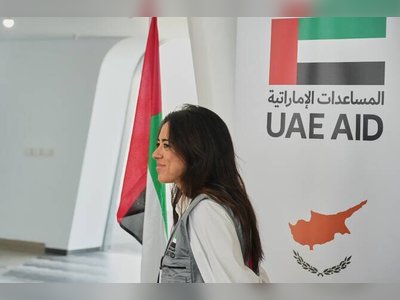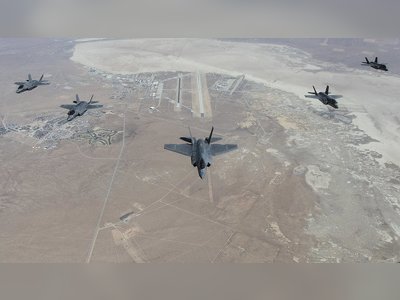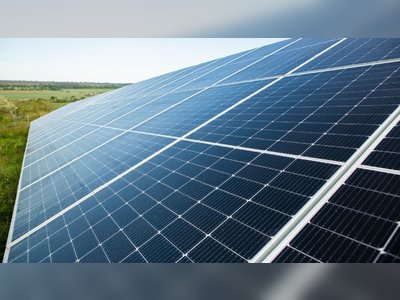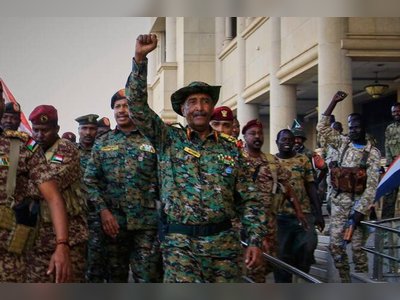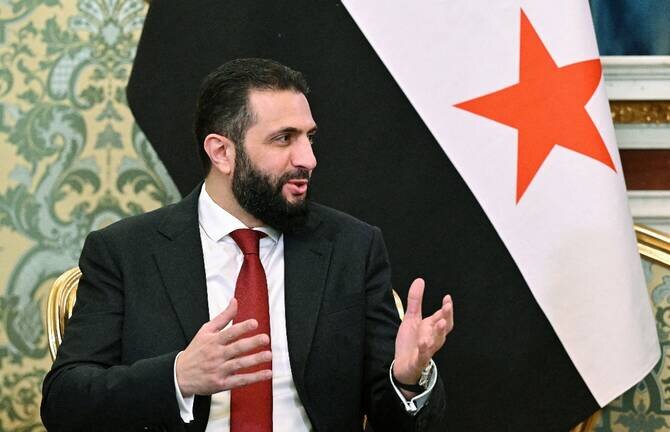
Britain Removes Sanctions on Syria's President and Interior Minister
The United Nations Security Council lifted sanctions ahead of a meeting between Syrian President Ahmad Al-Sharaa and US President Donald Trump.
In a significant diplomatic development, Britain removed sanctions imposed on Syria, specifically targeting President Ahmad Al-Sharaa and the country's interior minister, Anas Khattab.
This move follows an identical action by the United Nations Security Council (UNSC), which cleared the path for their meeting with US President Donald Trump scheduled for Monday.
The sanctions in question were initially designed to target financial activities associated with Islamic State and Al-Qaeda.
The lifting of these sanctions marks a noteworthy shift in international relations, particularly concerning Syria's political landscape.
Both Al-Sharaa and Khattab have been under financial restrictions aimed at curbing their involvement or support for terrorist organizations.
However, the UNSC's decision to rescind these measures indicates a potential easing of tensions between Western nations and the Syrian government.
This development may signal an attempt by the international community to foster dialogue and engagement with Syria amid ongoing geopolitical complexities.
Critics argue that such actions could inadvertently bolster the Assad regime's political standing and potentially undermine ongoing efforts to address human rights violations in Syria.
Nevertheless, this move represents a significant diplomatic gesture toward normalizing relations.
The specifics of why these sanctions were lifted remain unclear.
Official statements from the British government have emphasized the importance of supporting diplomatic channels and encouraging dialogue rather than isolation.
While the immediate implications of these actions are uncertain, they suggest a complex interplay between Western powers and regional actors in the Middle East.
This move follows an identical action by the United Nations Security Council (UNSC), which cleared the path for their meeting with US President Donald Trump scheduled for Monday.
The sanctions in question were initially designed to target financial activities associated with Islamic State and Al-Qaeda.
The lifting of these sanctions marks a noteworthy shift in international relations, particularly concerning Syria's political landscape.
Both Al-Sharaa and Khattab have been under financial restrictions aimed at curbing their involvement or support for terrorist organizations.
However, the UNSC's decision to rescind these measures indicates a potential easing of tensions between Western nations and the Syrian government.
This development may signal an attempt by the international community to foster dialogue and engagement with Syria amid ongoing geopolitical complexities.
Critics argue that such actions could inadvertently bolster the Assad regime's political standing and potentially undermine ongoing efforts to address human rights violations in Syria.
Nevertheless, this move represents a significant diplomatic gesture toward normalizing relations.
The specifics of why these sanctions were lifted remain unclear.
Official statements from the British government have emphasized the importance of supporting diplomatic channels and encouraging dialogue rather than isolation.
While the immediate implications of these actions are uncertain, they suggest a complex interplay between Western powers and regional actors in the Middle East.


